These $133,000 tiny homes can be taken apart in a few hours to move with their owners
Kodasema eventually hopes to expand to 200 Kodas in each village. It could represent a new type of mobile home.

Mark added that Kodasema's villages stand out, because it is building them close to downtowns. Many other tiny home developments have gone up in more rural areas, he said.
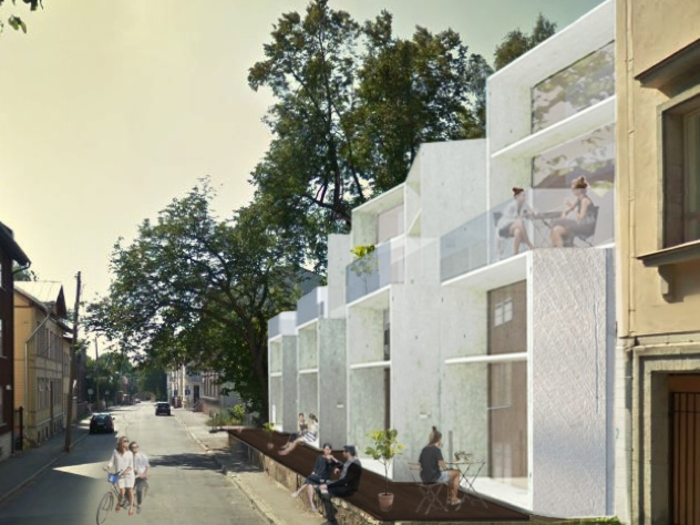
"Our lobby is the city," he said.
The Koda homes follow the rising of tiny living, which Mark said is not just a passing fad. "Just look at the statistics: More young people are living alone longer, marrying later, and moving around the world," he said.
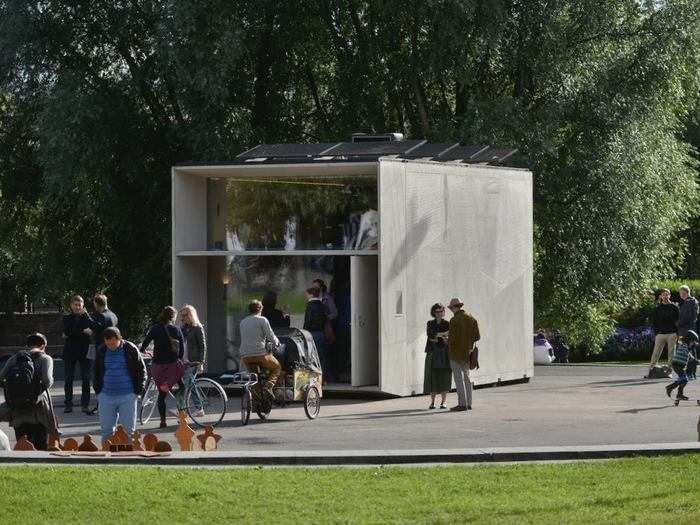
When an owner wants to move their house, they can pay Kodasema a fee to take it down, transport it, and re-assemble it in a new location.
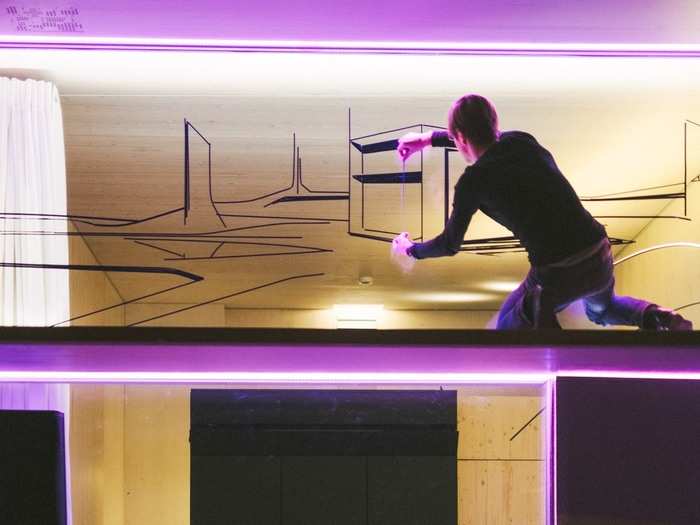
Though Mark acknowledged that anyone could live in a Koda, he said, with the villages, the company is targeting millennials "who are not tied down."
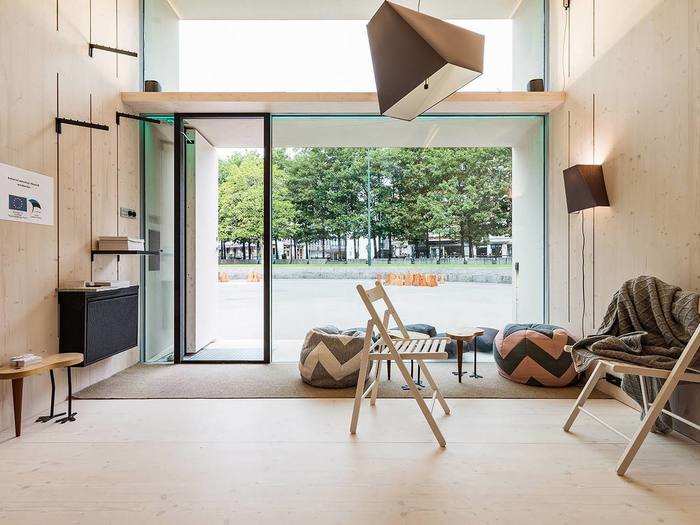
In Estonian, the word, "koda," refers to a quickly-built hut used by nomads. Kodasema wanted to capture that meaning with its Koda house, which allows for rapid construction and disassembly.
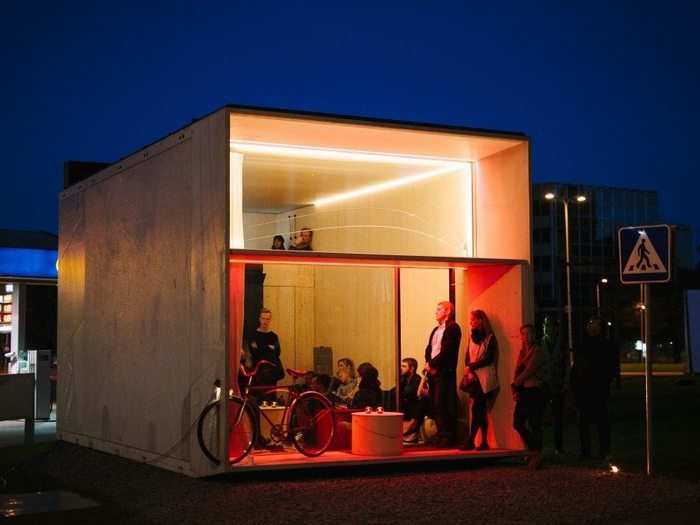
The roof's solar panels are expected to produce more energy than the unit consumes annually, Jakobson said. Even when there's little sun in the winter, the saved energy from the summer can light the home's LEDs.
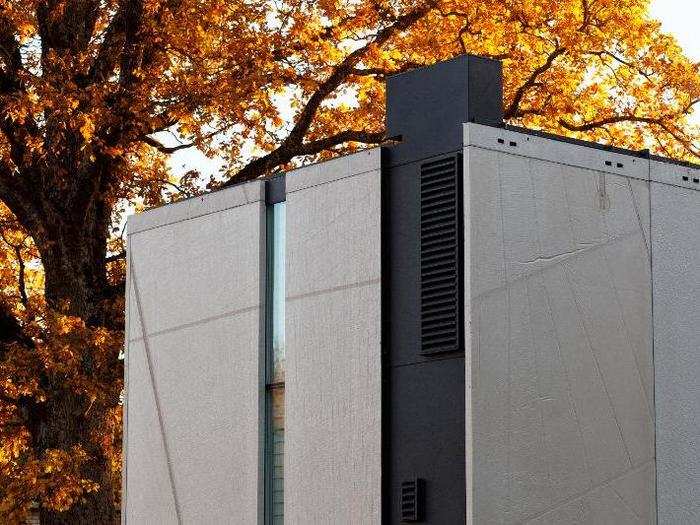
The 7-inch-thick walls are made of concrete-timber composite panels. While casting the concrete, the team places yacht sails on top to give it a lively texture.
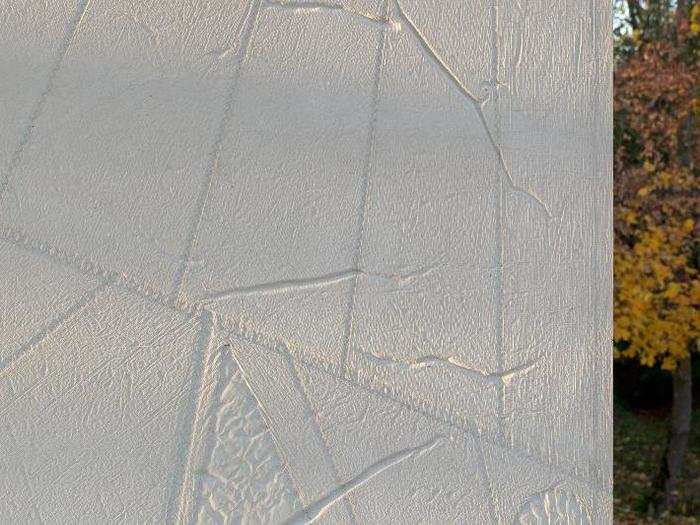
The parts are transported to sites via trailer. When they arrive, Kodasema assembles the building by crane. "It can be put together like 3D puzzle by our staff," Kodasema's other cofounder, Taavi Jakobson, said.
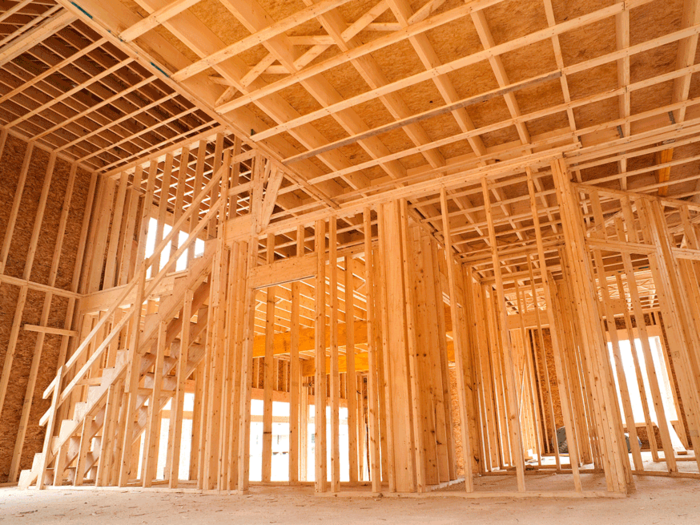
The house is pre-fabricated, meaning its components are all built at Kodasema's factory in Harkujärve, then assembled on-site. In late 2017, the team expects to be able to make three Kodas a week.
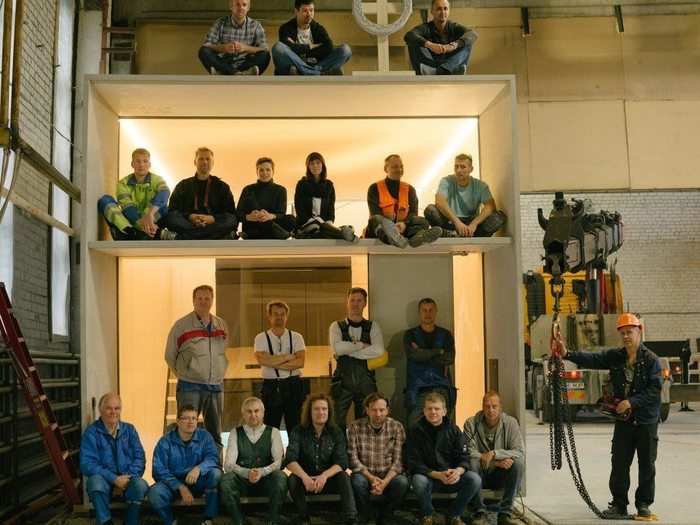
If you climb the stairs, you can access the lofted full-size bed.
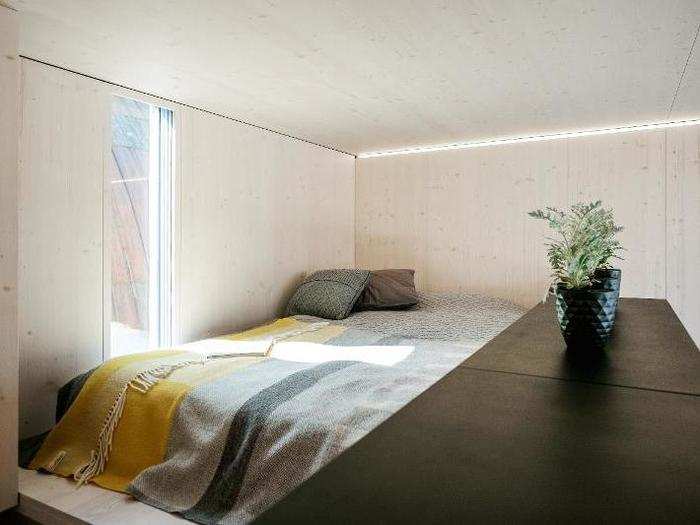
On the right side of the kitchen, a door leads to a bathroom with a toilet and shower.
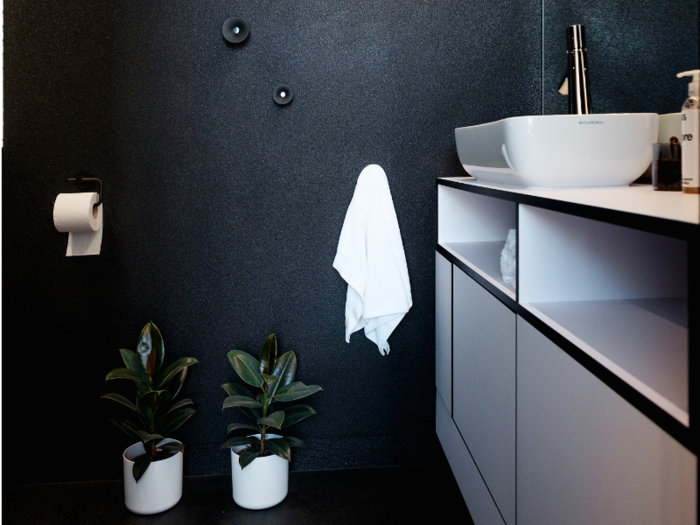
The kitchen has an oven, stovetop, drawers, and cabinets.
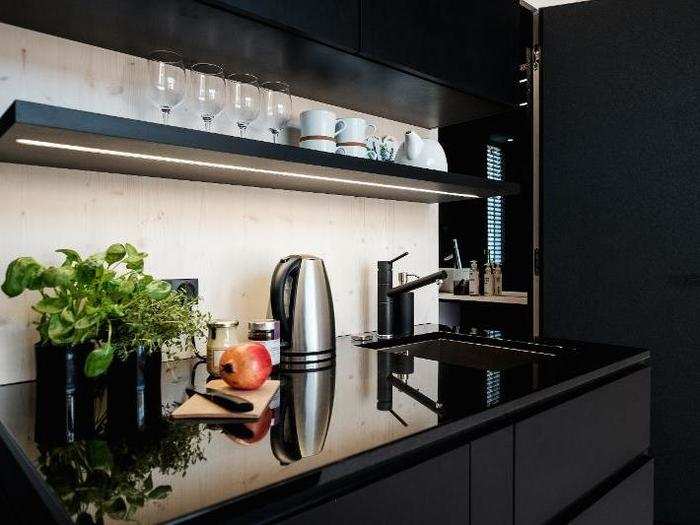
Mark said the Koda for Living has everything you need in a home: a living space, bathroom, kitchen, and lofted bed.
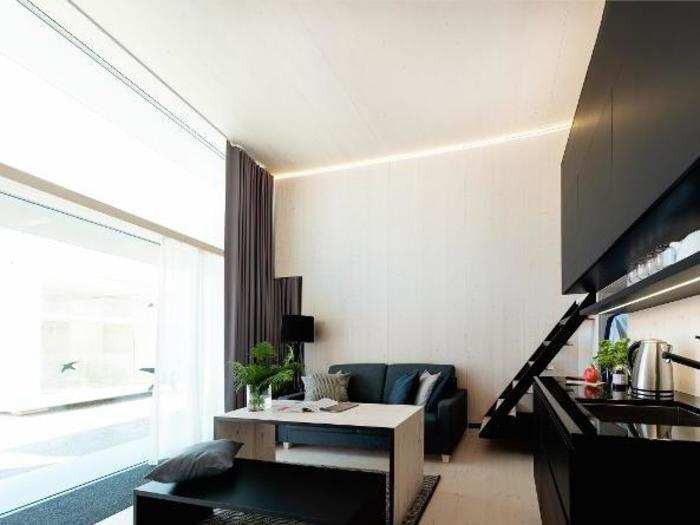
All three Koda models come furnished with pieces designed by the Estonian manufacturer Floyd IFS.
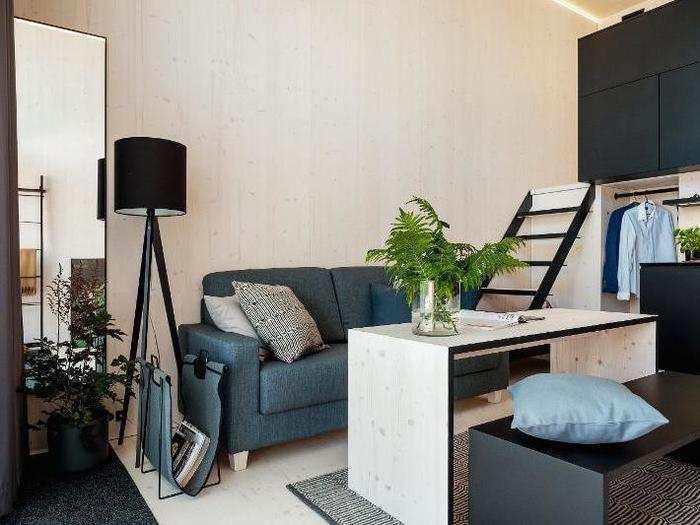
Each cube measures just 269 square feet. (For perspective, the average one-car garage is around 200-square-feet.)
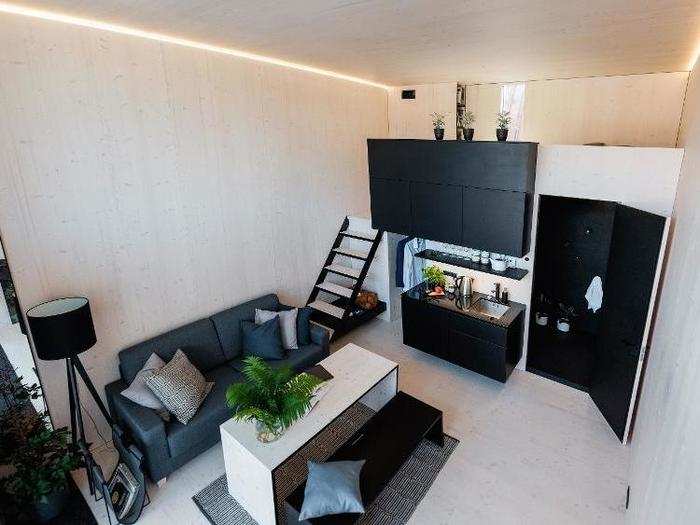
One side of the Koda is made of four-layered glass, which Mark said is thick enough to insulate the house from noise and cold. If owners want privacy, they can close the floor-to-ceiling curtain.
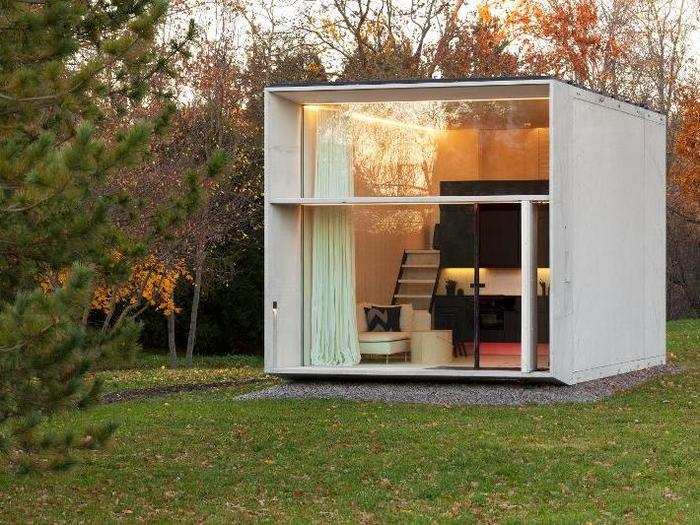
The team assembled each home in less than a day in July. Before the villages can open, however, they will need to go through four-month inspection processes by the cities. (Tallinn's already started this process.)
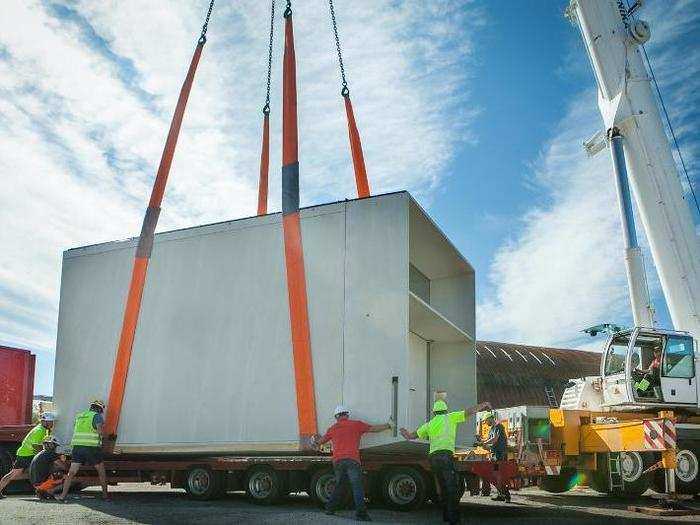
The Kodasema team is currently working on installing plumbing and electrical systems, as well as landscaping, which it expects to complete the week of August 7 in Tallinn. The site occupies about 11,000 square feet, Mark said.
Kodasema's tiny home villages will be located in car parks near city downtowns. The first will be in Estonia's capital, Tallinn, and will feature seven Koda houses. One will serve as an office, another as a public art gallery, and five as rentable homes.
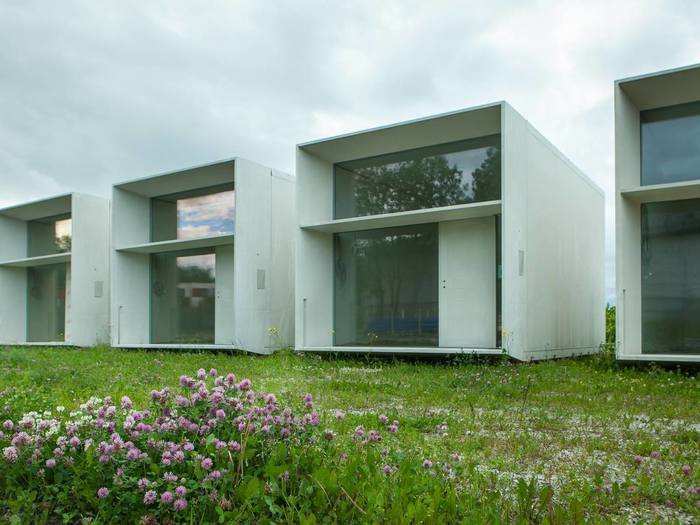
Popular Right Now
Popular Keywords
Advertisement